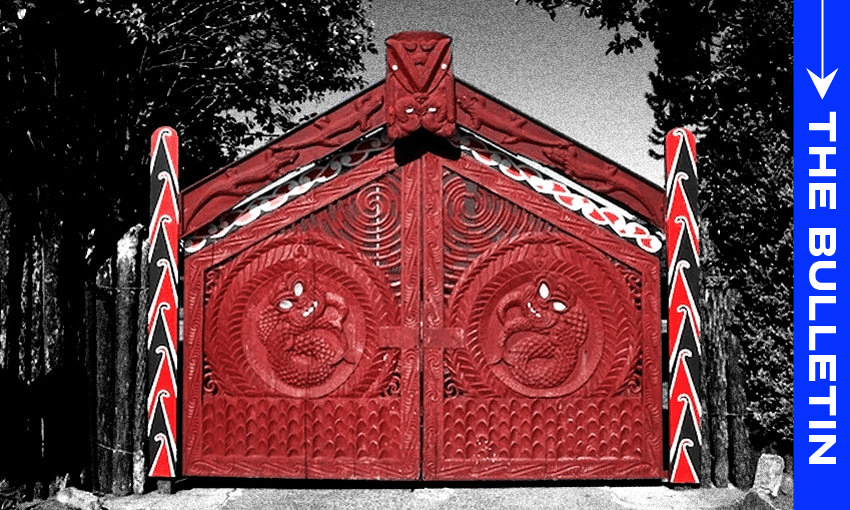Attendance at the national hui for unity surpassed even the most optimistic predictions of its organisers. With Rātana and Waitangi coming up, could the government be persuaded to change its tune, asks Catherine McGregor in this excerpt from The Bulletin, The Spinoff’s morning news round-up. To receive The Bulletin in full each weekday, sign up here.
Unity hui deemed a huge success
Six weeks ago Māori King Tuheitia called for a hui aa motu – a national hui for unity – to take place at Tūrangawaewae Marae just outside Ngāruawāhia. On Saturday the number of people who heeded his call was estimated at around 10,000, far exceeding organisers’ most optimistic predictions. “Every seat, everywhere, was taken. There was hardly standing room,” writes John Campbell in this excellent long-read. The hui was called by Tuheitia “not so much to challenge the government as to challenge Māori to stand up for themselves”, writes Aaron Smale in another highly recommended read on Newsroom. The Spinoff’s Tommy de Silva was also there and came away with 10 memorable quotes from the day including this rhetorical question from one attendee: “Why did we have to wait for Act to muck around with the Treaty for us to come together?”
Treaty Principles Bill prompts concern within justice ministry
While, as Mihi Forbes notes, the hui was concerned more with “what a future looks like for Māori” than with “agitators like David Seymour or Winston Peters” Act’s Treaty Principles Bill, which seeks to redefine key principles of te Tiriti o Waitangi, certainly added urgency to the discussions. The planned bill, which is expected to be tabled as early as May, was thrust back into the spotlight on Friday when 1News was leaked a draft Ministry of Justice memo expressing concerns. The bill proposes to change the nature of the principles in a way “not supported by either the spirit of the Treaty or the text of the Treaty”, the unnamed memo author wrote. National says it will support the bill only to its first reading, and PM Chris Luxon has told Kingitanga in private that his party “would not let the bill get to a second reading”, Aaron Smale reports
For the government, a tense few weeks ahead
Te hui aa motu will be followed by Rātana this Thursday and Waitangi in early February. These three events “will undoubtedly shape the dynamics of Māori-government relations in the coming year”, says RNZ’s Ella Stewart, who notes that the political environment threatens to make each a particularly tense occasion. For the first time since 2009, Kīngi Tūheitia will be attending Waitangi, reports Campbell. “Symbolic? Yes. Significant? Yes.” Luxon and other senior government ministers were a no-show on Saturday, as were the entirety of NZ First and Act. Their lack of interest indicates “they have not grasped the full political risk from a unified opposition to its plans that may emerge in the wake of the gathering” writes Vernon Small in the Sunday Star-Times. “Hikoi and protests, which were already evident in the wake of the coalition agreement, are not the half of it. Iwi now have the economic power, allied to intellectual grunt, legal precedence and in-iwi legal expertise to make Christopher Luxon’s political life a misery.”
Housing another area of unease
Beyond the Treaty Principles themselves, government policy is raising concerns about the future of many sectors which impact Māori. One is housing, where the outlook seems bleak indeed, write Anne Te One and Jacqueline Paul this morning on The Spinoff. Under the new government, initiatives that were set up to improve Māori access to housing are being dismantled. For example, the associate minister of housing (Māori housing) role has been disestablished, as has the associate housing ministership focused on homelessness. They’re both troubling developments given that Māori are far more likely to be homeless and far less likely to own their own homes than non-Māori, say Te One and Paul. “Under Te Tiriti o Waitangi… Māori expected to always be able to live and be housed on their land,” they write. “To have so many Māori homeless on their own land is among the most cruel outcomes of colonisation.”


